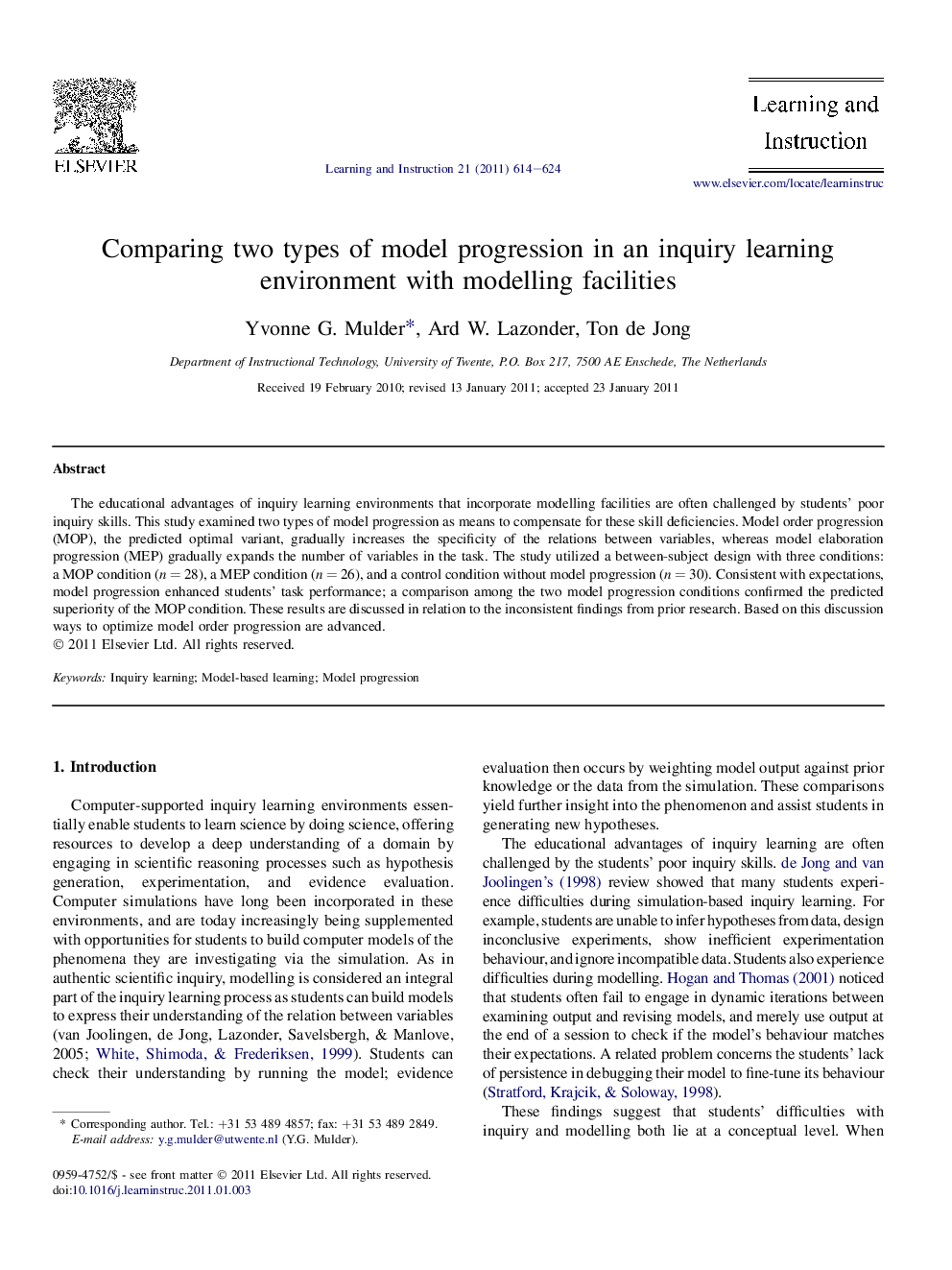| Article ID | Journal | Published Year | Pages | File Type |
|---|---|---|---|---|
| 365664 | Learning and Instruction | 2011 | 11 Pages |
The educational advantages of inquiry learning environments that incorporate modelling facilities are often challenged by students’ poor inquiry skills. This study examined two types of model progression as means to compensate for these skill deficiencies. Model order progression (MOP), the predicted optimal variant, gradually increases the specificity of the relations between variables, whereas model elaboration progression (MEP) gradually expands the number of variables in the task. The study utilized a between-subject design with three conditions: a MOP condition (n = 28), a MEP condition (n = 26), and a control condition without model progression (n = 30). Consistent with expectations, model progression enhanced students’ task performance; a comparison among the two model progression conditions confirmed the predicted superiority of the MOP condition. These results are discussed in relation to the inconsistent findings from prior research. Based on this discussion ways to optimize model order progression are advanced.
► Complexity of enquiry tasks can be increased by more sophisticated content (model order progression). ► Complexity can also be increased by more comprehensive content (model elaboration progression). ► Both types of model progression enhance students’ performance. ► Model order progression is more effective than model elaboration progression. ► Given the modest overall performance, ways to optimize model progression are discussed.
